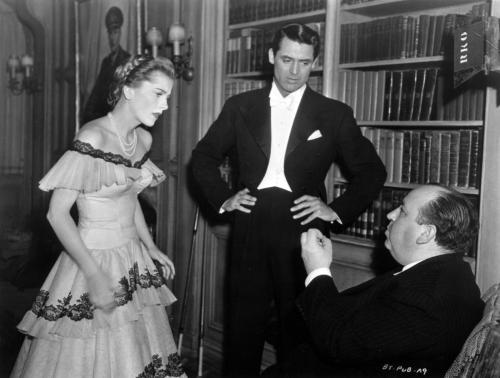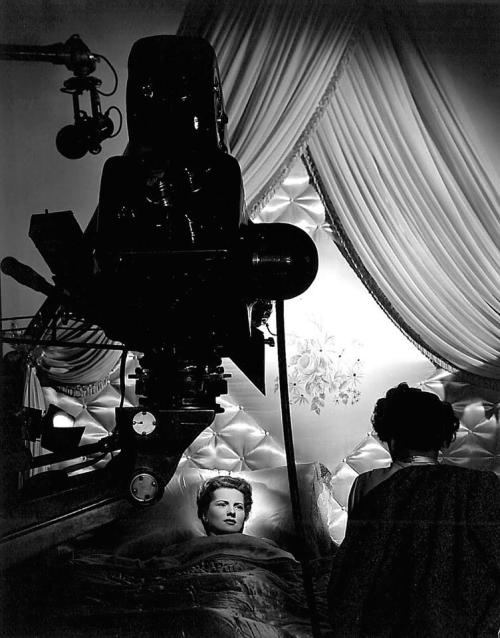cinephiliabeyond: Sometimes considered a second-rate product in a highly admirable series of excelle
cinephiliabeyond: Sometimes considered a second-rate product in a highly admirable series of excellent movies in Alfred Hitchcock’s dossier, the 1941 psychological thriller named Suspicion is, au contraire, a masterful exposition of Hitchcock’s skills. If we take all the circumstances of its production into consideration, especially the information on the studio’s meddling in the process and its stubborn and artistically misguided insistence on what proved to be a clumsily pasted happy ending to a very dark tale, what Hitchcock managed to make is a rather exceptional thriller. Since the story features a woman secretly becoming more aware of her husband’s murderous intentions, the central problem was the casting of Cary Grant. RKO allegedly fought very hard not to allow Hitchcock to end the film the way he wanted—with the scheming playboy’s murdering of his loving, rich spouse, in fear of tarnishing Grant’s reputation and image in the minds of moviegoers. Even though we personally liked the ending, because it imposed an important cautionary message on the harm that lack of communication and unbased suspicions can inflict on people’s lives, it’s perfectly understandable why it seemed unnatural to end the picture on such a positive, optimistic note, after an hour and a half of psychological turmoil caused by masterful suspense played out from the hands of the genre’s unique master.The film is based on Anthony Berkeley Cox’s novel ‘Before the Fact,’ but Suspicion was hardly shy of straying both narratively and thematically from its source. The screenplay was written by Samson Raphaelson, Joan Harrison and Hitchcock’s wife Alma Reville, after a former version of the script, penned by Nathanael West and Boris Ingster, was discarded as soon as Hitchcock came on board. The delightful score by Franz Waxman, as well as Harry Stradling Jr.’s top grade photography, aided Hitchcock greatly in achieving the palpable tension and the atmosphere of distrust and fear verging on paranoia. Cary Grant and Joan Fontaine infuse Suspicion with credibility and emotion, with the latter giving the only Academy Award-winning performance in a Hitchcock film. Suspicion was a success, as it generously helped establish the filmmaker’s status of a bankable director in Hollywood, but box office reports hardly matter in the long run—Suspicion is first and foremost an admirable film that showed a true artist can create great things even under the crippling harness of a profit-driven studio.‘Suspicion’: Proof that a True Artist Can Create Great Things Even Under the Crippling Harness of a Profit-Driven Studio -- source link




